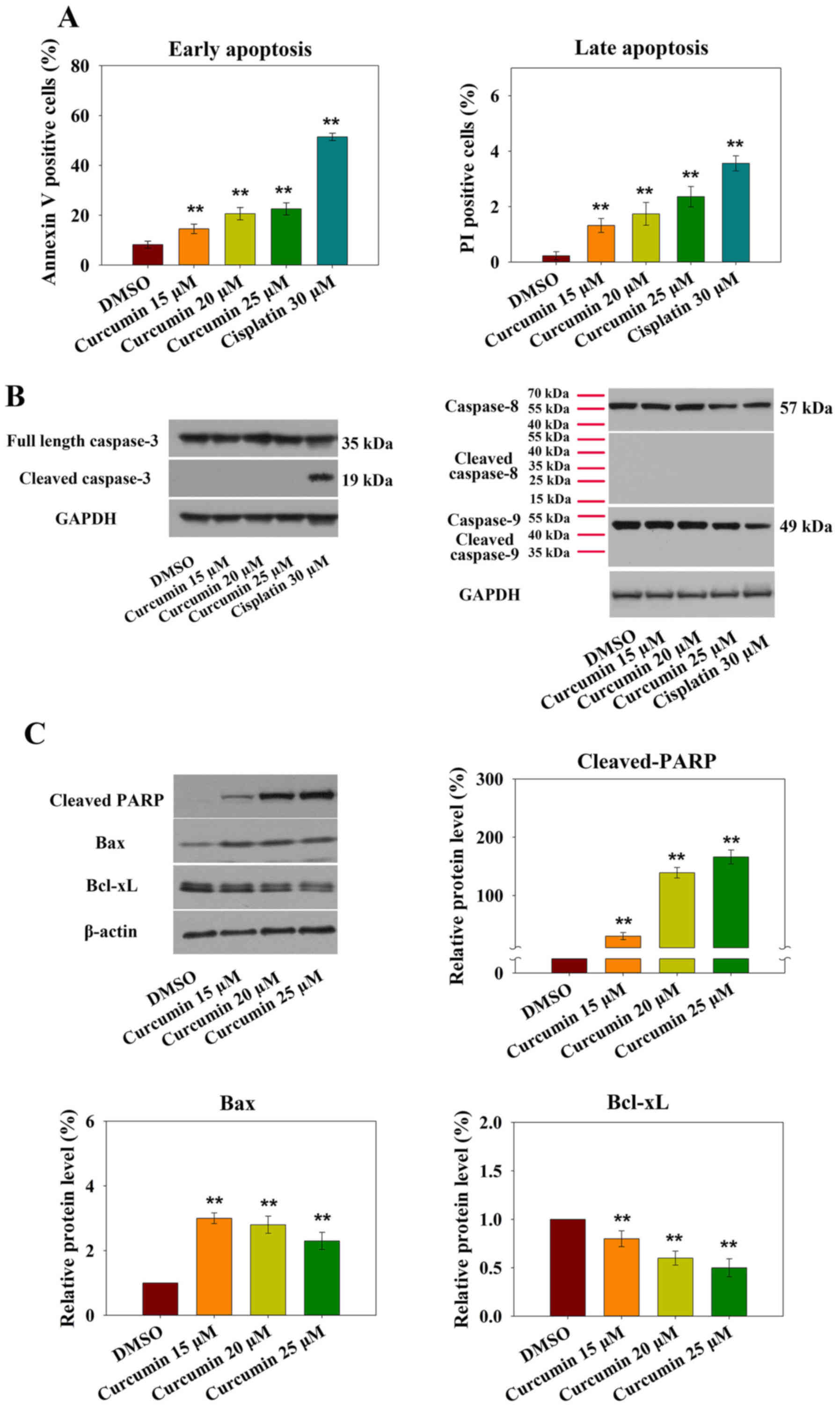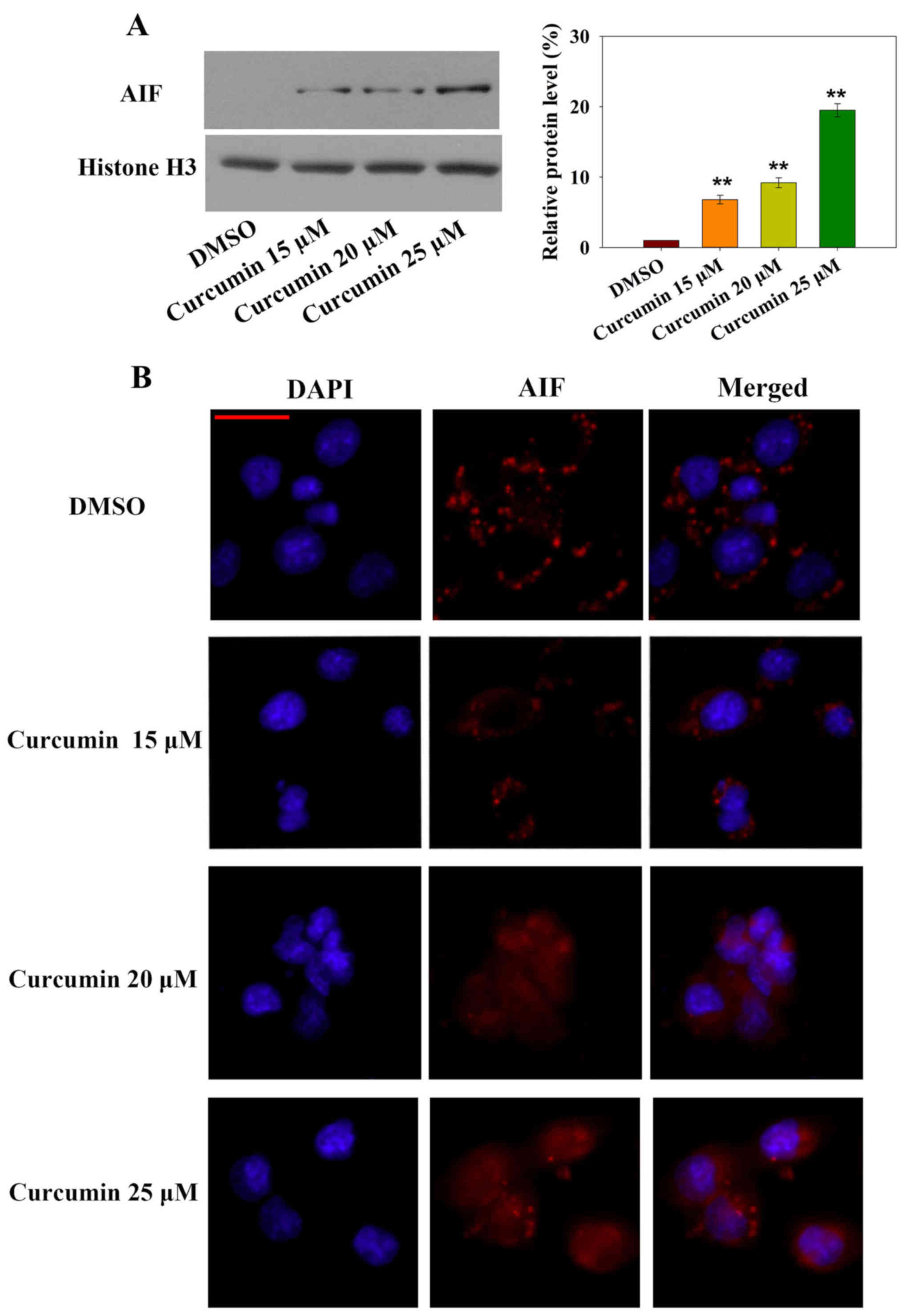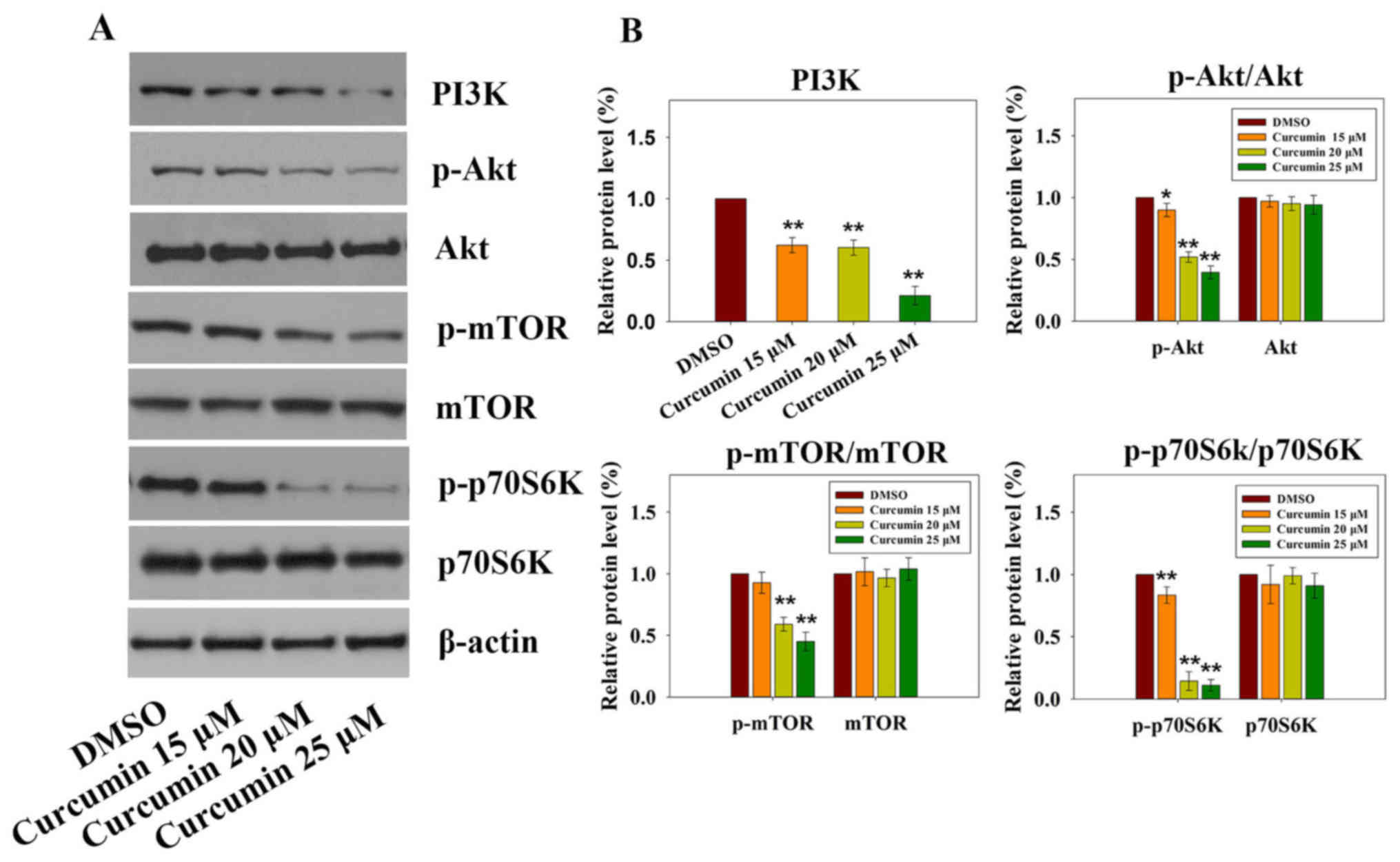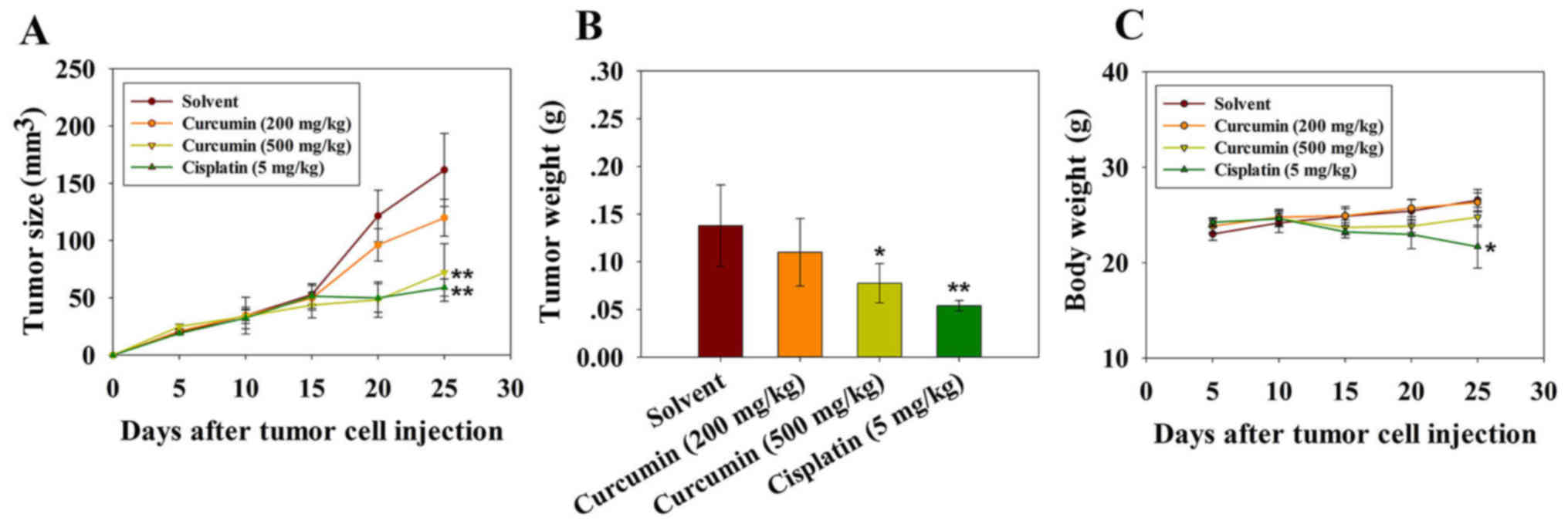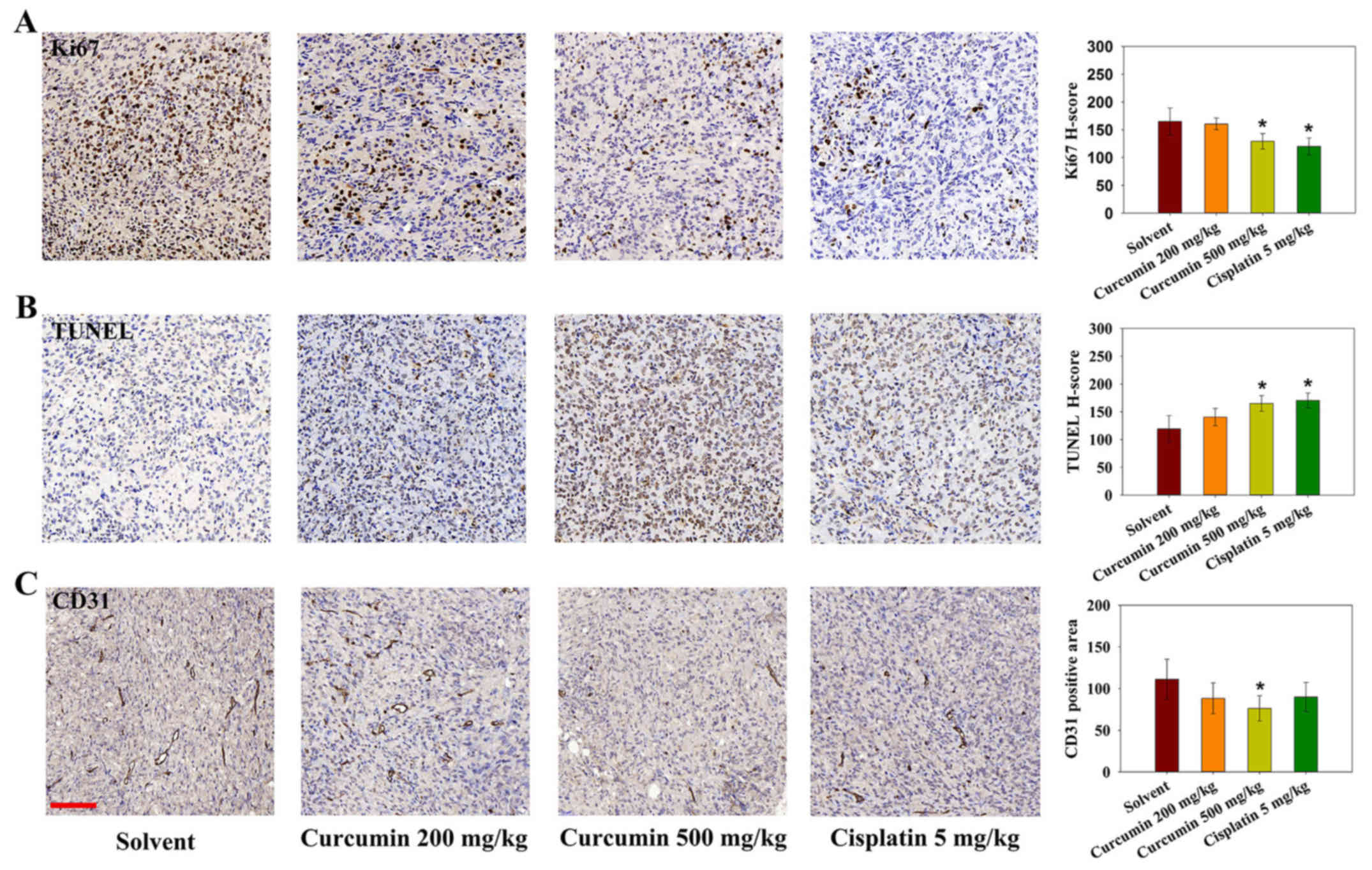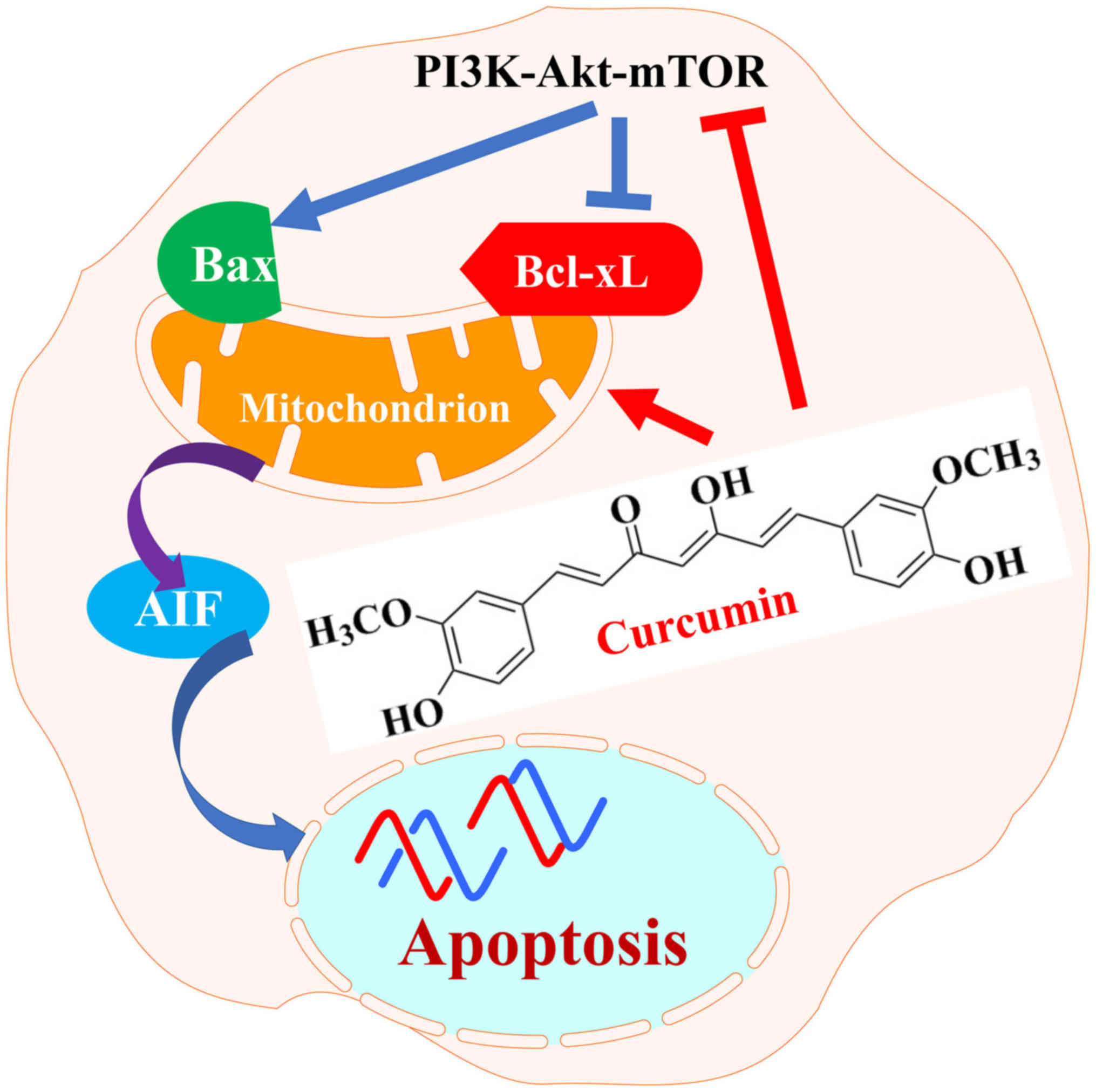|
1
|
Robinson BWS, Musk AW and Lake RA:
Malignant mesothelioma. Lancet. 366:397–408. 2005. View Article : Google Scholar : PubMed/NCBI
|
|
2
|
Scherpereel A, Astoul P, Baas P, Berghmans
T, Clayson H, de Vuyst P, Dienemann H, Galateau-Salle F, Hennequin
C, Hillerdal G, et al: European Respiratory Society/European
Society of Thoracic Surgeons Task Force: Guidelines of the European
Respiratory Society and the European Society of Thoracic Surgeons
for the management of malignant pleural mesothelioma. Eur Respir J.
35:479–495. 2010. View Article : Google Scholar
|
|
3
|
Perrot M, Wu L, Wu M and Cho BCJ:
Radiotherapy for the treatment of malignant pleural mesothelioma.
Lancet Oncol. 18:e532–e542. 2017. View Article : Google Scholar : PubMed/NCBI
|
|
4
|
Milano MT and Zhang H: Malignant pleural
mesothelioma: A population-based study of survival. J Thorac Oncol.
5:1841–1848. 2010. View Article : Google Scholar : PubMed/NCBI
|
|
5
|
Kaku Y, Nagaya H, Tsuchiya A, Kanno T,
Gotoh A, Tanaka A, Shimizu T, Nakao S, Tabata C, Nakano T, et al:
Newly synthesized anticancer drug HUHS1015 is effective on
malignant pleural mesothelioma. Cancer Sci. 105:883–889. 2014.
View Article : Google Scholar : PubMed/NCBI
|
|
6
|
Altomare DA, You H, Xiao GH, Ramos-Nino
ME, Skele KL, De Rienzo A, Jhanwar SC, Mossman BT, Kane AB and
Testa JR: Human and mouse mesotheliomas exhibit elevated AKT/PKB
activity, which can be targeted pharmacologically to inhibit tumor
cell growth. Oncogene. 24:6080–6089. 2005. View Article : Google Scholar : PubMed/NCBI
|
|
7
|
Anand P, Sundaram C, Jhurani S,
Kunnumakkara AB and Aggarwal BB: Curcumin and cancer: An 'old-age'
disease with an 'age-old' solution. Cancer Lett. 267:133–164. 2008.
View Article : Google Scholar : PubMed/NCBI
|
|
8
|
Kunnumakkara AB, Anand P and Aggarwal BB:
Curcumin inhibits proliferation, invasion, angiogenesis and
metastasis of different cancers through interaction with multiple
cell signaling proteins. Cancer Lett. 269:199–225. 2008. View Article : Google Scholar : PubMed/NCBI
|
|
9
|
Miller JM, Thompson JK, MacPherson MB,
Beuschel SL, Westbom CM, Sayan M and Shukla A: Curcumin: A double
hit on malignant mesothelioma. Cancer Prev Res (Phila). 7:330–340.
2014. View Article : Google Scholar
|
|
10
|
Yamauchi Y, Izumi Y, Asakura K, Hayashi Y
and Nomori H: Curcumin induces autophagy in ACC-MESO-1 cells.
Phytother Res. 26:1779–1783. 2012. View
Article : Google Scholar : PubMed/NCBI
|
|
11
|
Masuelli L, Benvenuto M, Di Stefano E,
Mattera R, Fantini M, De Feudis G, De Smaele E, Tresoldi I, Giganti
MG, Modesti A, et al: Curcumin blocks autophagy and activates
apoptosis of malignant mesothelioma cell lines and increases the
survival of mice intraperitoneally transplanted with a malignant
mesothelioma cell line. Oncotarget. 8:34405–34422. 2017. View Article : Google Scholar : PubMed/NCBI
|
|
12
|
Wang Y, Rishi AK, Wu W, Polin L, Sharma S,
Levi E, Albelda S, Pass HI and Wali A: Curcumin suppresses growth
of mesothelioma cells in vitro and in vivo, in part, by stimulating
apoptosis. Mol Cell Biochem. 357:83–94. 2011. View Article : Google Scholar : PubMed/NCBI
|
|
13
|
Blum W, Pecze L, Felley-Bosco E,
Worthmüller-Rodriguez J, Wu L, Vrugt B, de Perrot M and Schwaller
B: Establishment of immortalized murine mesothelial cells and a
novel mesothelioma cell line. In Vitro Cell Dev Biol Anim.
51:714–721. 2015. View Article : Google Scholar : PubMed/NCBI
|
|
14
|
Zhang C, Zhai S, Li X, Zhang Q, Wu L, Liu
Y, Jiang C, Zhou H, Li F, Zhang S, et al: Synergistic action by
multi-targeting compounds produces a potent compound combination
for human NSCLC both in vitro and in vivo. Cell Death Dis.
5:e11382014. View Article : Google Scholar : PubMed/NCBI
|
|
15
|
Zhang C, Zhai S, Wu L, Bai Y, Jia J, Zhang
Y, Zhang B and Yan B: Induction of size-dependent breakdown of
blood-milk barrier in lactating mice by TiO2
nanoparticles. PLoS One. 10:e01225912015. View Article : Google Scholar
|
|
16
|
Detre S, Saclani Jotti G and Dowsett M: A
"quickscore" method for immunohistochemical semiquantitation:
Validation for oestrogen receptor in breast carcinomas. J Clin
Pathol. 48:876–878. 1995. View Article : Google Scholar : PubMed/NCBI
|
|
17
|
Jordan RC, Lingen MW, Perez-Ordonez B, He
X, Pickard R, Koluder M, Jiang B, Wakely P, Xiao W and Gillison ML:
Validation of methods for oropharyngeal cancer HPV status
determination in US cooperative group trials. Am J Surg Pathol.
36:945–954. 2012. View Article : Google Scholar : PubMed/NCBI
|
|
18
|
Lee SJ, Krauthauser C, Maduskuie V,
Fawcett PT, Olson JM and Rajasekaran SA: Curcumin-induced HDAC
inhibition and attenuation of medulloblastoma growth in vitro and
in vivo. BMC Cancer. 11:1442011. View Article : Google Scholar : PubMed/NCBI
|
|
19
|
Subramaniam D, May R, Sureban SM, Lee KB,
George R, Kuppusamy P, Ramanujam RP, Hideg K, Dieckgraefe BK,
Houchen CW, et al: Diphenyl difluoroketone: A curcumin derivative
with potent in vivo anticancer activity. Cancer Res. 68:1962–1969.
2008. View Article : Google Scholar : PubMed/NCBI
|
|
20
|
Budihardjo I, Oliver H, Lutter M, Luo X
and Wang X: Biochemical pathways of caspase activation during
apoptosis. Annu Rev Cell Dev Biol. 15:269–290. 1999. View Article : Google Scholar : PubMed/NCBI
|
|
21
|
Fruman DA and Rommel C: PI3K and cancer:
Lessons, challenges and opportunities. Nat Rev Drug Discov.
13:140–156. 2014. View Article : Google Scholar : PubMed/NCBI
|
|
22
|
Fu H, Wang C, Yang D, Wei Z, Xu J, Hu Z,
Zhang Y, Wang W, Yan R and Cai Q: Curcumin regulates proliferation,
autophagy, and apoptosis in gastric cancer cells by affecting PI3K
and P53 signaling. J Cell Physiol. 233:4634–4642. 2018. View Article : Google Scholar
|
|
23
|
Banik U, Parasuraman S, Adhikary AK and
Othman NH: Curcumin: The spicy modulator of breast carcinogenesis.
J Exp Clin Cancer Res. 36:982017. View Article : Google Scholar : PubMed/NCBI
|
|
24
|
Echeverry N, Ziltener G, Barbone D, Weder
W, Stahel RA, Broaddus VC and Felley-Bosco E: Inhibition of
autophagy sensitizes malignant pleural mesothelioma cells to dual
PI3K/mTOR inhibitors. Cell Death Dis. 6:e17572015. View Article : Google Scholar : PubMed/NCBI
|
|
25
|
Hu A, Huang JJ, Li RL, Lu ZY, Duan JL, Xu
WH, Chen XP and Fan JP: Curcumin as therapeutics for the treatment
of head and neck squamous cell carcinoma by activating SIRT1. Sci
Rep. 5:134292015. View Article : Google Scholar : PubMed/NCBI
|
|
26
|
Yang S, Huang J, Liu P, Li J and Zhao S:
Apoptosis-inducing factor (AIF) nuclear translocation mediated
caspase-independent mechanism involves in X-ray-induced MCF-7 cell
death. Int J Radiat Biol. 93:270–278. 2017. View Article : Google Scholar
|
|
27
|
Cho H-D, Lee J-H, Moon K-D, Park K-H, Lee
M-K and Seo K-I: Auriculasin-induced ROS causes prostate cancer
cell death via induction of apoptosis. Food Chem Toxicol.
111:660–669. 2018. View Article : Google Scholar
|
|
28
|
Rodrik-Outmezguine VS, Chandarlapaty S,
Pagano NC, Poulikakos PI, Scaltriti M, Moskatel E, Baselga J,
Guichard S and Rosen N: mTOR kinase inhibition causes
feedback-dependent biphasic regulation of AKT signaling. Cancer
Discov. 1:248–259. 2011. View Article : Google Scholar : PubMed/NCBI
|
|
29
|
Pons-Tostivint E, Thibault B and
Guillermet-Guibert J: Targeting PI3K signaling in combination
cancer therapy. Trends Cancer. 3:454–469. 2017. View Article : Google Scholar : PubMed/NCBI
|
|
30
|
Fetoni AR, Paciello F, Mezzogori D, Rolesi
R, Eramo SL, Paludetti G and Troiani D: Molecular targets for
anticancer redox chemotherapy and cisplatin-induced ototoxicity:
The role of curcumin on pSTAT3 and Nrf-2 signalling. Br J Cancer.
113:1434–1444. 2015. View Article : Google Scholar : PubMed/NCBI
|
|
31
|
Dienstmann R, Rodon J, Serra V and
Tabernero J: Picking the point of inhibition: A comparative review
of PI3K/AKT/mTOR pathway inhibitors. Mol Cancer Ther. 13:1021–1031.
2014. View Article : Google Scholar : PubMed/NCBI
|
|
32
|
Bronte G, Incorvaia L, Rizzo S, Passiglia
F, Galvano A, Rizzo F, Rolfo C, Fanale D, Listì A, Natoli C, et al:
The resistance related to targeted therapy in malignant pleural
mesothelioma: Why has not the target been hit yet? Crit Rev Oncol
Hematol. 107:20–32. 2016. View Article : Google Scholar : PubMed/NCBI
|
|
33
|
Choi BH, Kim CG, Lim Y, Shin SY and Lee
YH: Curcumin downregulates the multidrug-resistance mdr1b gene by
inhibiting the PI3K/Akt/NF kappa B pathway. Cancer Lett.
259:111–118. 2008. View Article : Google Scholar
|
|
34
|
Chearwae W, Anuchapreeda S, Nandigama K,
Ambudkar SV and Limtrakul P: Biochemical mechanism of modulation of
human P-glycoprotein (ABCB1) by curcumin I, II, and III purified
from Turmeric powder. Biochem Pharmacol. 68:2043–2052. 2004.
View Article : Google Scholar : PubMed/NCBI
|
|
35
|
Bava SV, Puliyappadamba VT, Deepti A, Nair
A, Karunagaran D and Anto RJ: Sensitization of taxol-induced
apoptosis by curcumin involves downregulation of nuclear
factor-kappaB and the serine/threonine kinase Akt and is
independent of tubulin polymerization. J Biol Chem. 280:6301–6308.
2005. View Article : Google Scholar
|
|
36
|
Dhandapani KM, Mahesh VB and Brann DW:
Curcumin suppresses growth and chemoresistance of human
glioblastoma cells via AP-1 and NFkappaB transcription factors. J
Neurochem. 102:522–538. 2007. View Article : Google Scholar : PubMed/NCBI
|
|
37
|
Edwards JG, Cox G, Andi A, Jones JL,
Walker RA, Waller DA and O'Byrne KJ: Angiogenesis is an independent
prognostic factor in malignant mesothelioma. Br J Cancer.
85:863–868. 2001. View Article : Google Scholar : PubMed/NCBI
|
|
38
|
Ohta Y, Shridhar V, Bright RK, Kalemkerian
GP, Du W, Carbone M, Watanabe Y and Pass HI: VEGF and VEGF type C
play an important role in angiogenesis and lymphangiogenesis in
human malignant mesothelioma tumours. Br J Cancer. 81:54–61. 1999.
View Article : Google Scholar : PubMed/NCBI
|
|
39
|
Grosso F, Steele N, Novello S, Nowak AK,
Popat S, Greillier L, John T, Leighl NB, Reck M, Taylor P, et al:
Nintedanib plus pemetrexed/cisplatin in patients with malignant
pleural mesothelioma: Phase II results from the randomized,
placebo-controlled LUME-meso trial. J Clin Oncol. 35:3591–3600.
2017. View Article : Google Scholar : PubMed/NCBI
|
|
40
|
Yap TA, Aerts JG, Popat S and Fennell DA:
Novel insights into mesothelioma biology and implications for
therapy. Nat Rev Cancer. 17:475–488. 2017. View Article : Google Scholar : PubMed/NCBI
|
|
41
|
Fu Z, Chen X, Guan S, Yan Y, Lin H and Hua
ZC: Curcumin inhibits angiogenesis and improves defective
hematopoiesis induced by tumor-derived VEGF in tumor model through
modulating VEGF-VEGFR2 signaling pathway. Oncotarget.
6:19469–19482. 2015. View Article : Google Scholar : PubMed/NCBI
|
















